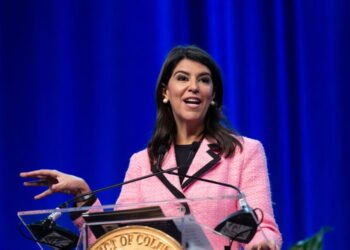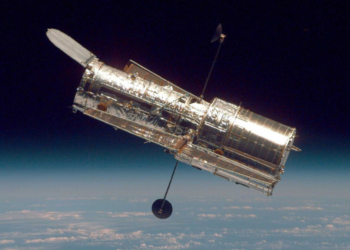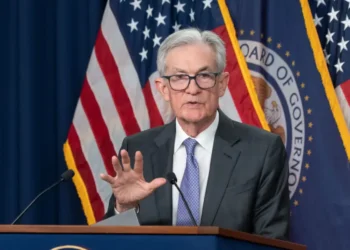Last week, after President Donald Trump made clear he was not intending to show up, the Dominican Republic announced the postponement of the Summit of the Americas, the triennial gathering of Western Hemisphere leaders to address shared priorities and concerns.
“Deep divisions … currently hinder productive dialogue,” the Foreign Ministry said, noting that the meeting it was due to host in early December would be rescheduled.
Last week, after President Donald Trump made clear he was not intending to show up, the Dominican Republic announced the postponement of the Summit of the Americas, the triennial gathering of Western Hemisphere leaders to address shared priorities and concerns.
“Deep divisions … currently hinder productive dialogue,” the Foreign Ministry said, noting that the meeting it was due to host in early December would be rescheduled.
The White House had indicated that the event conflicted with Trump’s plans to be at the final draw for the 2026 World Cup, slated to be held Dec. 5 at the Kennedy Center.
Trump’s withdrawal came as fewer than half of the 29 countries that have participated in past summits had agreed to attend, according to regional officials familiar with the planning, most of whom spoke on the condition of anonymity to discuss hemispheric tensions.
But even without his presence, Trump’s policies promised a diplomatic slugfest. His transactional approach — benefits for those who cooperate and punishment for those who criticize or impede his plans — has forged a deep chasm among Latin American governments.
Having the summit now, one senior Latin American official said, was “not conducive to having a friendly meeting of any type. … The atmosphere … is just toxic.”
Since September, Trump has deployed a growing armada of warships and thousands of American troops in the Caribbean to conduct lethal attacks on alleged drug-trafficking boats from South American shores, authorized CIA covert actions and threatened land attacks in Venezuela.
But from the start of his administration, punitive tariffs and perceived interference in their domestic politics had signaled for many in Latin America an unwelcome return to the long history of U.S. assertion of control in the hemisphere. Among a number of regional leaders, there’s a belief that he has more than counternarcotics in mind.
Beyond the ongoing attacks, the administration has moved toward a more permanent U.S. military presence in the region with plans for an air base in Ecuador, robust temporary troop rotations in Panama, newly active use of an airport in El Salvador with which U.S. Southern Command has a long-standing cooperative agreement, and the reopening of a mothballed naval base in Puerto Rico.
Few in the region have much sympathy for Venezuela’s strongman, President Nicolás Maduro, whom Trump has said heads a criminal gang intent on causing death and destruction through “armed conflict” with the United States. Organized crime is a growing menace throughout Latin America.
But memories of 20th-century U.S. aggression, from military invasion and occupation to the covert overthrow of disfavored governments, remain fresh. Many in the region are anxiously awaiting release of the administration’s national security strategy and its accompanying national defense strategy, documents reportedly completed some months ago. Both are said to dramatically redirect U.S. attention and security focus toward the Western Hemisphere.
“We have to … wait and see how it is going to be applied,” the Latin American official said.
A senior administration official provided a preview of the hard-line policy shift. “The overall strategy is America First. Countries who choose to align with U.S. interests and are open to mutually beneficial deals reap the benefits” of economic cooperation “and have the option of partnering with our incredible military and intelligence services,” the official said in an email, sent on the condition of anonymity under rules set by the White House.
Those who “enable and support cartels who poison U.S. citizens or allow adversarial nations access to control critical infrastructure or base hostile capabilities in our backyard” — an apparent reference to China and Russia — “will feel pressure to change course.”
China has made substantial investments in South America and is the continent’s largest trading partner, while Russia has supplied sophisticated weaponry and military backing to Venezuela.
Countries in the region, the official said, “are free to choose and will be held responsible for their choices.”
Some have already chosen and been rewarded. Argentine President Javier Milei, an outspoken Trump admirer and frequent visitor to Washington, has won $20 billion in currency support for his ailing economy. El Salvador has been paid millions to imprison deported migrant detainees.
Paraguay signed an agreement to receive U.S. asylum seekers as part of a broader cooperation agreement on security and economic initiatives. Guatemala has also agreed to take deported migrants. The small island nation of Trinidad and Tobago, located just a few miles offshore from Venezuela, was deemed “a strong partner” by Trump after its prime minister hailed the Caribbean deployments and said of drug traffickers that “the U.S. military should kill them all violently.”
Foreign Minister Sean Sobers announced Friday that Trinidad and Tobago’s military would participate, beginning Sunday, in five days of “rural and urban” exercises there with the U.S. 22nd Marine Expeditionary Unit. Sobers said he had no indication the exercises would be used to assist any planned U.S. action inside Venezuela.
In September, Secretary of State Marco Rubio visited Ecuador, a country plagued by criminal narco-trafficking gangs and long a prime transit corridor for Colombian cocaine. U.S. designation of two of those gangs, Los Lobos and Los Choneros, as foreign terrorist organizations, Rubio said at a news conference, would allow the U.S. to share intelligence so that Ecuador could “kill terrorists” itself.
A U.S. military base in Ecuador was abandoned in 2009, Rubio said, after a previous president there “who didn’t like us very much and I guess wanted to help out the narco-traffickers” asked the Americans to leave. Current President Daniel Noboa has indicated he wants to reverse that decision.
In a show of Washington’s largesse to a now-friendly government, Rubio suggested a U.S.-Ecuadorian free trade agreement was coming “very, very shortly,” that the administration would support Quito’s monetary appeals at the International Monetary Fund, and he announced $20 million in anti-crime and military assistance.
Last week, Homeland Security Secretary Kristi L. Noem visited Ecuador to tour the former U.S. base in the coastal city of Manta and discuss security cooperation.
Several Latin American diplomats described efforts by the Trump administration to form a new grouping of countries supportive of U.S. actions. These plans began to come together last weekend, when the presidents of Argentina, Paraguay, Ecuador and the foreign minister of Panama met with U.S. Deputy Secretary of State Christopher Landau in Bolivia. All had attended the inauguration of the country’s new president, Rodrigo Paz Pereira, whose election ended two decades of socialist leadership.
For those who have failed to get on board with administration plans or been openly critical, punishment has been swift. Colombian President Gustavo Petro’s confrontational call in September for U.S. troops to disobey Trump’s orders earned him cancellation of his U.S. visa and sanctions for alleged ties to “narcoterrorists.”
In an ongoing exchange of personal insults, Trump has called Petro, a former leftist guerrilla, an “illegal drug leader” who is “low rated and very unpopular,” and threatened tariffs and aid cutoffs. Referring to Colombian supplies of cocaine to the U.S., Trump said Petro “better close up” drug operations “or the United States will close them up for him, and it won’t be done nicely.”
Petro has called Trump a murderer and a “barbarian” for the boat attacks and said this week he was canceling all intelligence cooperation between the U.S. and Colombia — long the principle hub for U.S. counter-drug operations in South America.
In Mexico, President Claudia Sheinbaum’s opposition to the attacks and killings has taken a different tack. Under an existing agreement between the two countries, she reportedly emphasized this week, Mexico was looking to bolster the sharing of U.S. intelligence to allow Mexican forces to interdict and arrest alleged narcotics traffickers at sea — rather than wait for the U.S. to kill them.
With Trump, sometimes all it has taken was a pleasant conversation to flip his opinion of a foreign leader.
Temperatures rose between Brazil’s leftist President Luiz Inácio Lula da Silva earlier this year when Trump criticized the Brazilian prosecution of a Trump ally, former president Jair Bolsonaro, for plotting a coup and slapped 50 percent tariffs on Brazilian exports to the U.S.
After a brief exchange at the United Nations and a sit-down last month at a summit in Asia, Trump seemed to change his mind. The meeting, he said, was “great” and their teams would “immediately” begin negotiations on tariffs and other issues.
Lula, the senior Trump administration official said, was an “instructive example” of how to get along with the U.S. “If a leader is willing to change course and choose to align with policies that protect U.S. citizens, President Trump is willing to make a deal.”
But even as he was preparing to meet with Trump on the margins of the ASEAN summit in Malaysia, Lula called out the boat strikes as illegal. A head of state, he said, is “not there to kill people, you’re there to arrest them. … You have to choose whether you want to be a respected and loved leader or a hated and feared leader.”
The post Trump’s Venezuela war threats roil Latin American leaders
appeared first on Washington Post.




